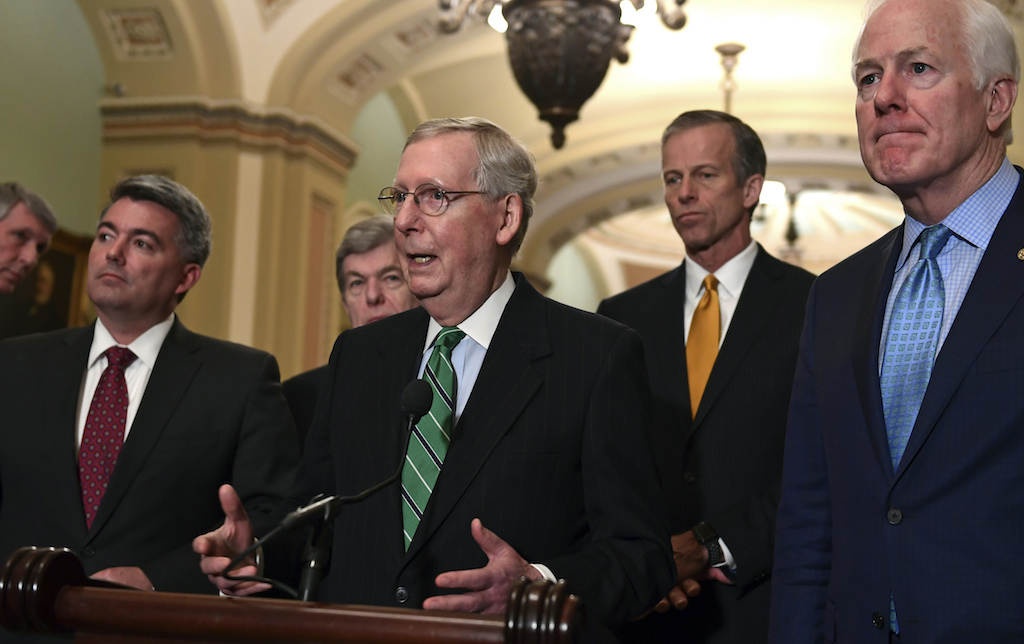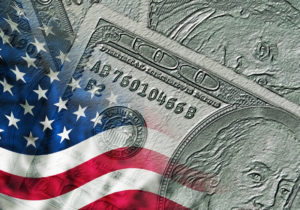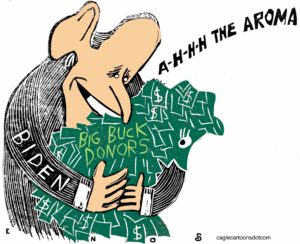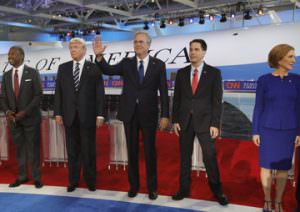The Disturbing Reason Mitch McConnell Won’t Secure Our Elections
Safety measures enjoy bipartisan support, but the senate majority leader continues to block them. A look at his donors helps explain why. Senate Majority Leader Mitch McConnell. (Susan Walsh / AP)
Senate Majority Leader Mitch McConnell. (Susan Walsh / AP)
Special Counsel Robert Mueller’s report detailing his team’s investigation into Russian interference in the 2016 presidential election “stopped short of accusing [President Trump] of criminal wrongdoing,” as Matt Apuzzo and Adam Goldman write in The New York Times, leaving Congress to decide whether to investigate further any potential obstruction of justice and conspiracy. However, Mueller’s report did conclude Russia breached voting systems in Illinois and Florida in 2016, and testimony from national security officials to the Senate in April also revealed Russia targeted voting systems in a total of 21 states during the 2016 election.
Worried about future elections, Republicans and Democrats alike created legislation to improve election security, including Sen. Ron Wyden, D-Ore., Sen. James Lankford, R-Okla., and Rep. John Sarbanes, D-Md. These bills, as Donald Shaw reports in Sludge, have another aspect in common: they have all been blocked by Senate Majority Leader Mitch McConnell, R-Ky.
McConnell, Shaw writes, “reportedly told his colleagues that he will not allow the Senate to vote on election security legislation this session.” According to Wyden, “The only logical conclusion is that Sen. McConnell wants American elections to be vulnerable to hackers and foreign interference,” Wyden told Sludge.
Wyden added, “If Congress doesn’t act, it’s only a matter of time before hackers successfully interfere again.”
In The New York Times, Nicholas Fandos echoes Shaw, calling McConnell “the Senate’s leading ideological opponent to federal regulation of elections,” adding he “has long been an implacable foe of legislation that mandates disclosure or limits on political donors.”
McConnell remains a roadblock, Fandos continues, “despite clamoring from members of his own conference and the growing pressure from Democrats who also sense a political advantage in trying to make the Republican response to Russia’s election attack look anemic.”
That the legislation would require disclosures or limits on political donors, Sludge suggests, may be part of McConnell’s reasoning. As Shaw explains:
The two largest voting machine vendors in the U.S., Election Systems & Software (ES&S) and Dominion Voting Systems, together supply more than 80% of the nation’s voting machines. The companies have operated extensive lobbying operations in states for years, and both companies recently hired new lobbyists to represent them at the federal level.
Some of that money, Shaw continues, went to McConnell:
Several of the lobbyists working for ES&S and Dominion Voting Systems have recently made contributions to McConnell’s campaign and joint fundraising committee.
Brownstein Hyatt Farber and Schreck’s David Cohen, who lobbies for Dominion Voting Systems on issues related to election security and monitors federal legislation for the company, gave McConnell $2,000 on March 31: $1,000 to his campaign committee and $1,000 to his joint fundraising committee. Lobbyist Brain Wild, who works alongside Cohen on the Dominion contract, gave McConnell $1,000 on the same day.
McConnell and his office did not respond to Sludge’s request for comment.
On previous occasions, McConnell has said existing efforts to protect election systems are enough. Fandos points out that in the same May speech in which he announced “case closed” in reference to the Russia investigation, McConnell also said, “We just had the 2018 midterm elections. Thanks to this administration’s leadership, all 50 states and more than 1,400 local election jurisdictions focused on election security like never before,” adding, “Thanks to efforts across the federal government, in 2018, we were ready.”
Advocates for election security and government transparency remain unconvinced. Craig Holman, government affairs lobbyist at Public Citizen, told Sludge, “Mitch McConnell’s conflicts of interest in blocking any and all election security legislation is not only shameful, it is placing our democracy at risk.”
Holman added, “The conflicts of interest arise from more than the campaign contributions he is receiving from voting machine vendors—contributions which certainly appear to be a reward from the industry for letting them off the hook—but it is also a self-serving act for strictly partisan purposes.”
Your support matters…Independent journalism is under threat and overshadowed by heavily funded mainstream media.
You can help level the playing field. Become a member.
Your tax-deductible contribution keeps us digging beneath the headlines to give you thought-provoking, investigative reporting and analysis that unearths what's really happening- without compromise.
Give today to support our courageous, independent journalists.






You need to be a supporter to comment.
There are currently no responses to this article.
Be the first to respond.